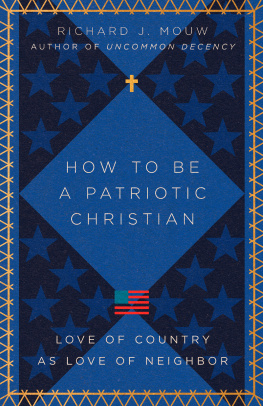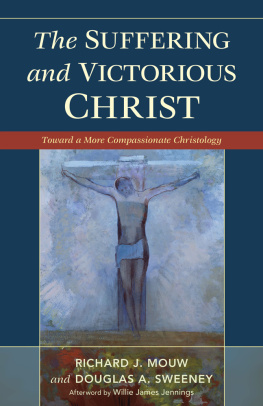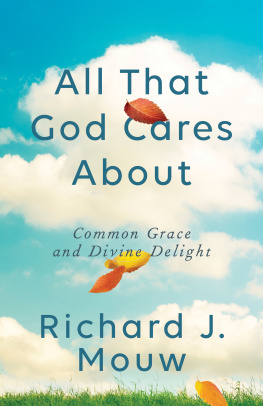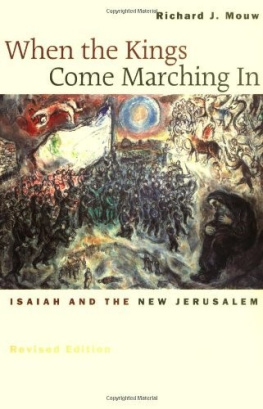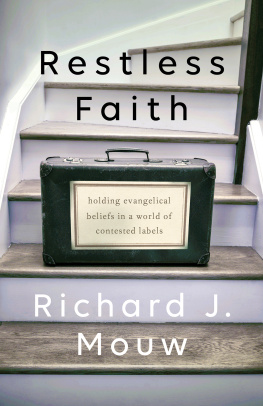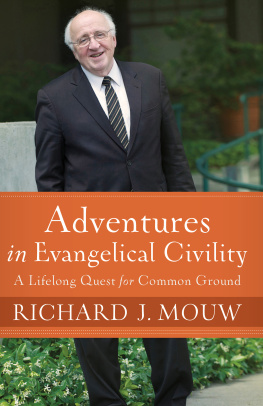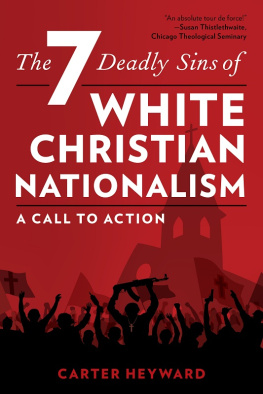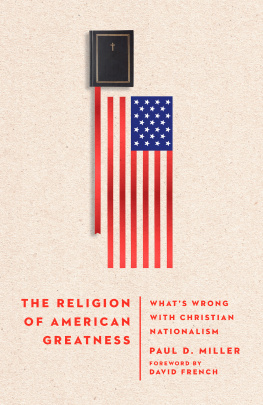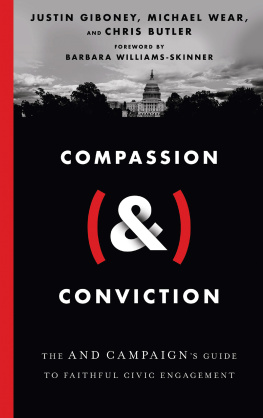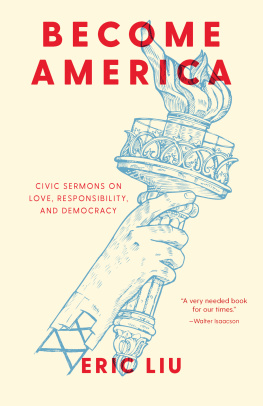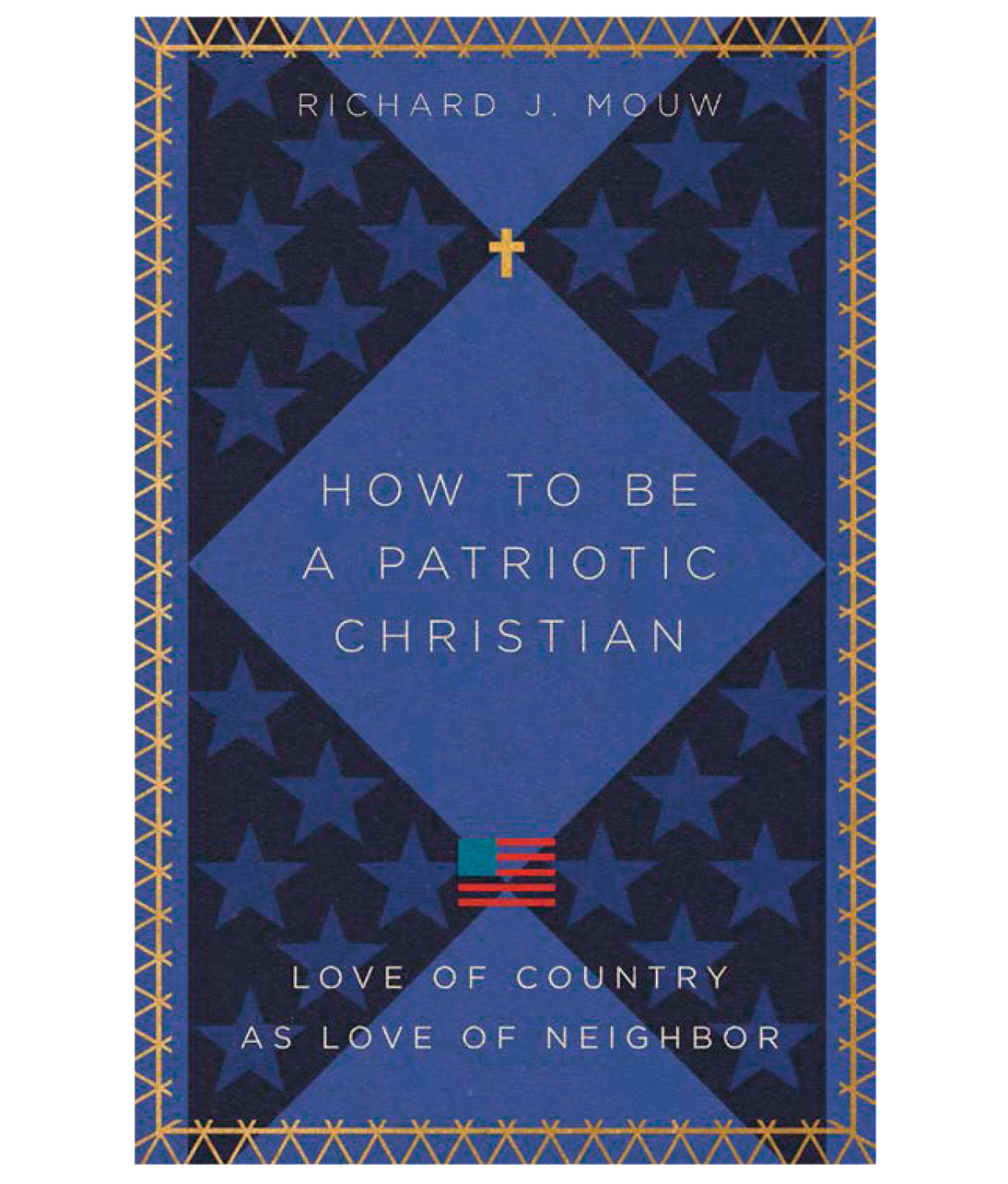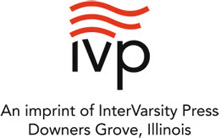Sommaire
Pagination de l'dition papier
Guide
InterVarsity Press
P.O. Box 1400, Downers Grove, IL 60515-1426
ivpress.com
2022 by Richard J. Mouw
All rights reserved. No part of this book may be reproduced in any form without written permission from InterVarsity Press.
InterVarsity Press is the book-publishing division of InterVarsity Christian Fellowship/USA, a movement of students and faculty active on campus at hundreds of universities, colleges, and schools of nursing in the United States of America, and a member movement of the International Fellowship of Evangelical Students. For information about local and regional activities, visit intervarsity.org.
All Scripture quotations, unless otherwise indicated, are taken from The Holy Bible, New International Version, NIV. Copyright 1973, 1978, 1984, 2011 by Biblica, Inc. Used by permission of Zondervan. All rights reserved worldwide. www.zondervan.com. The NIV and New International Version are trademarks registered in the United States Patent and Trademark Office by Biblica, Inc.
While any stories in this book are true, some names and identifying information may have been changed to protect the privacy of individuals.
The publisher cannot verify the accuracy or functionality of website URLs used in this book beyond the date of publication.
Cover design and image composite: David Fassett
Images: 05 TGTS-Kraft-Paper: from True Grit Paper Supply
gold foil: Katsumi Murouchi / Moment / Getty Images
ISBN 978-1-5140-0403-6 (digital)
ISBN 978-1-5140-0402-9 (print)
This digital document has been produced by Nord Compo.

T he title that I chose for this book announces my intention to offer counsel to Christian readers about how to be patriotic. I should make it clear at the outset, though, that this is not a how-to guide in the sense that it offers a list of steps that people should take if they want to succeed in some endeavor. I would not know how to craft such a list. The closest I can come to giving how-to advice about relating faith to patriotism is this: keep wrestling with the questions.
Questions like these: What does it mean to love our nation? If, as the Bible says, the powers that be are ordained by God, does that mean we should not criticize them? What about expressions of patriotism in our church worship? And what about using religious language on events celebrating national holidays? Is civil religion a bad thing? What does all of this mean in times like ours, when we are experiencing deep polarizations? These topics are what I will be exploring.
My own understanding of how to be patriotic as a Christian is a work in progress. I keep wrestling with the questions, and I hope I can offer guidance to others about how to persevere in the wrestling. I know that there are people in present-day American society who see no need to do the wrestling. They can be found on both ends of the spectrum of views about patriotism. On the one end are the people who simply equate God and country, insisting that the true destiny of the United States is to live up to our calling as a Christian nation. On the other end are the folks who see all expression of patriotism as bad, with special disdain when love of country is connected to religious faith.
I dont know how to get the folks on those opposite ends of that spectrum to listen to each other. But I take comfort in the fact that they do represent extreme ends of a spectrum and that there is considerable room between the extremes. I find it helpful to explore the spaces between the extremes, in the confidence that the Christian message gives us resources for that kind of exploring.
The problem these days, of course, is that the public debates about patriotism are often dominated by the extremes. This has been especially true in recent years when polarization seems to have become the rule of the day. The result is that many folksespecially many of the thoughtful Christians that I knowavoid talking about these things. When I have told people that I was writing about patriotism, I have often been urged to be careful. They worry that just by raising questions and exploring the middle spaces I will lose readers who want me to lean one way or another on the political spectrum.
I understand those concerns, but I am going to make the effort anyway. My hope is that I can use these pages as a safe place for focusing on basic Christian thoughtsdrawing on biblical teachingsabout what it means to be citizens in the nation where the Lord has placed us.
My use of the image of wrestling to describe what I hope we can do together here may seem a bit too combative for this kind of discussion. But given the kind of angry combat going on in these partisan days, wrestling is actually fairly tame. As a sportand I am not thinking here about the WWE variety!people wrestle together to test their own strength and agility. Animosity and the desire to wound the other wrestler are out of place. What I have in mind here is some spiritual and theological wrestling: testing the strength and productivity of our understandings of the obligations of citizenship. We can even set the goal that Jacob had in mind when he wrestled with the angel in Genesis 32. He engaged in the match in order to be blessed.
In working for a mutual blessing here, I need to make it clear at the outset that I am writing as a citizen of a specific nation. I am writing about being patriotic with regard to the United States of America, the nation where the Lord has placed me. My discussion here will be about American patriotism. Im not sure I could get very far in writing about a generic sort of patriotism. I believe it is necessary to think about where we specifically are called to be patriotic. In my scholarly life I have devoted much attention in my teaching and writing to major topics and themes in political thought: theories of government, the nature of political authority, questions of religious freedom, and so on. All of that has helped me in attaining some clarity about the backgroundthe general frameworkfor what I will be exploring in these pages. Good books have been written, for example, about political symbols that often have religious associations. In scholarly discussions of that sort, national flags are sometimes used as examples. I learn from those academic studies, but I find that when I start thinking about patriotism, my thoughts about flags quickly get quite personal. I reflect on how I feel and think about my countrys flag, the stars and the stripes.
ADJECTIVE AND NOUN
In choosing the two main words for my topicpatriotic ChristianI was very intentional in choosing Christian as the noun. That word identifies our fundamental identity as believers. Trusting in Christ because of what he has accomplished on our behalf is what defines us. The opening question and answer of the catechism that I learned as a child (the 1563 Heidelberg Catechism) puts it beautifully: the Christians only comfort in life and in death is that I am not my own, but belongbody and soul, in life and in deathto my faithful Savior, Jesus Christ. We have by Gods grace been given a new location, being in Christ.
Of course, the global community of people who share that common identity of being in Christ also live in diverse national locations. And how we understand our Christian identity in relation to those diverse contexts will differ from nation to nation.

